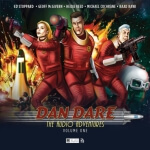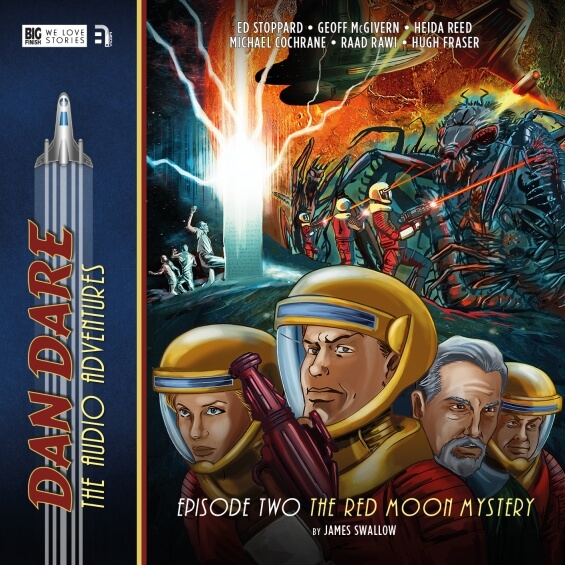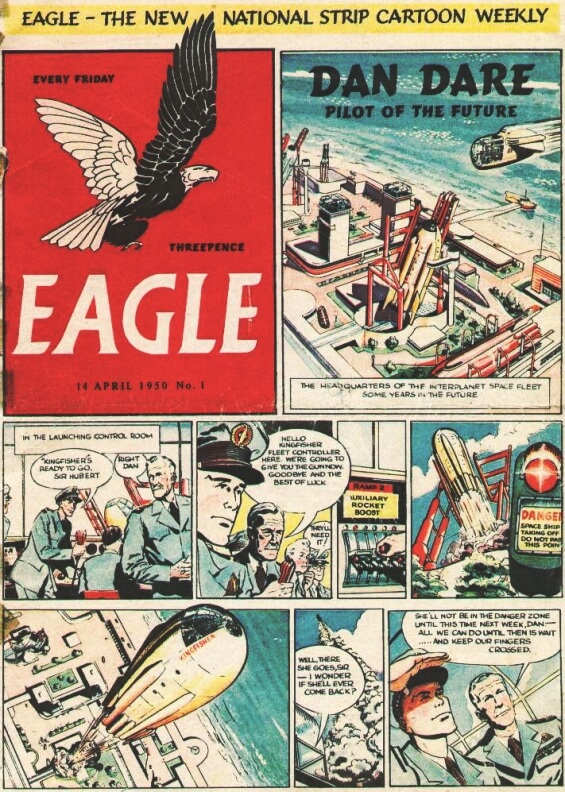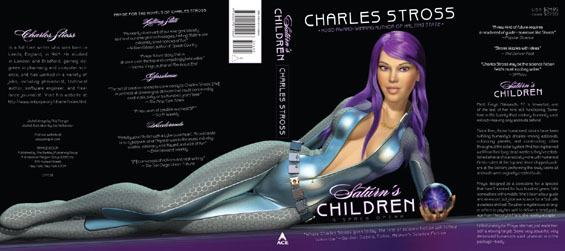
 The SFFaudio Podcast #545 – Jesse, Paul Weimer, Maissa Bessada, Julie Davis, and Terence Blake talk about Police Your Planet by Lester del Rey
The SFFaudio Podcast #545 – Jesse, Paul Weimer, Maissa Bessada, Julie Davis, and Terence Blake talk about Police Your Planet by Lester del Rey
Talked about on today’s show:
cobber, guv’nor, tinhorn, ex-firster, a contemptible person, the Australian etymology, comrade, a revolution book, profound and deep and amazing, not the greatest science fiction novel ever written, no illusions, leg-clining, leg cling is the best part, ridiculous, weirdness, Helen O’Loy, Nerves, shaping the paperback industry, in the mood for something like, dig deep to keep going, 1.2x speed, police yourself, eastern USA accent?, perfectly adapted to the novel, implacable, a bulldozer through the plot, a fast read, a sweet-spot for science fiction novels, the period, what he’s doing, where this book fits in science fiction, The Moon Is A Harsh Mistress but on Mars with more Mickey Spillane, more like tar than noir, Julie likes Maissa’s spirit, the same scenario over and over, Groundhog Day, shaking people down and breaking heads, a 15 page short story, Philip St. John was editor of several magazines, praising his own novel in the editorial, defending the novel against critics, fired from Future Publications, juggling everything, editorials, writing short stories and essays for four magazines, writing the novel while publishing it, a three part serial turns into four, people hate the serial, some people love them, he doesn’t really know where its going to end, this is gonna be okay (and then it fell apart), noirish style, the same trick over and over again, cop tinhorn fighter, Mercury mines, a punched mealticket, what the repetition does, not a fan of security, maybe…, Honest Izzy, didn’t pay-off, why did I get dragged through all this?, why you should be excited to buy this magazine, Van Lihn, a convincing picture of a planet, we were enjoying it, super-sloppy, not detail oriented?, its all getting done badly, apologizing, the height of the massive growth of science fiction magazines, as a product of that period, Dickens did that, he knew his prolific output, Elizabeth Gaskell, the motivation of Shelia, putting a gang together, why she attacked Gordon and was crying, in debt, sold as a slave, this is for what you did to Hilda, as a defense mechanism he hid all his soft feelings behind a tough mechanical exterior, a machine devoid of feeling, too much?, the fix-up, taking stuff in and take stuff out, chapter titles, chapter two is missing, police your prose, “Girl Gangs Of Marsport”, John W. Campbell, appreciating Campbell, the Del Rey books, his fourth wife, he’s a fucking liar, Erik Van Lihn, his Wikipedia entry, a professional liar, the closing editorial, “but it could happen”, happy to see it’s end, a darn fine yarn, doesn’t anyone like it, terrible as a whole, fun bits, it doesn’t overstay its welcome, it should have been about Mother Corey, pulpy, the agent of change is a ex-boxer ex-gambler ex-cop ex-whistleblower, a yellow journal, benign agency, a traitor, if you squint a bit or your sick its not that bad, Durance, prison planet, done RIGHT, Australia as prison colony experience, a gloss of paint rather than thinking about ideas, Jerry Pournelle’s Co-Dominion, Sparta (prison planet), he could have done a lot more with this, less than the sum of its parts, what this podcast might be doing, what science fiction is, exploring the things Jesse’s interested in, the South Pacific in the 1830s (without spaceships), set on Mars with rockets and domes and superchargers, not science fiction, an editorial in Science Fiction Quarterly, February 1957, Robert W. Lowndes, P. Schuyler Miller, “The Reference Library”, good heavens!, Bridey Murphy, a suspense story, that’s a crime busting tale, where is the science fiction, it didn’t need to be set on Mars, gangs of New York, westerns, a lawless wild west story, almost no concrete ideas that are particularly speculative, something that Eric (Rabkin) taught Jesse, transformed language, The Teaching Company, an impression of the world in which you’re living, Cuddles, he sands the dishes for her, pioneer stories, designed to give you an impression of a whole world in the background you don’t see in the text, what makes it really science fiction is that it has ideas, so scattershot, he doesn’t follow through, Olaf Stapledon, no characters, idea after idea after idea, what science fiction might be, science is ways of knowing, he doesn’t know what he’s doing when he starts, a Philip K. Dick trick: he makes it symmetrical, the plot and the beatings and the dome punching, goddamned communists!, how do revolutions happen?, interesting as an artifact, imperialism, why certain things look like, a Big Big World, continents and countries and resources, why are people doing X, Y, or Z?, geography and resources, WWII, why are things happening this way, that’s where the oilfields are, like the game Settlers Of Catan, life outside of Marsport, Komarr, Lois McMaster Bujold, which is it?, changing from paragraph to paragraph, he’s going to derail an already overly long book, heartland hinterland, the Canadian experience, the resources for the USA, branchplantism, car factories in Ontario, Canada as a the hinterland for the United States’ heartland, the outsiders and the insiders, there’s a dystopia on Earth that we don’t get to see, a corrupt journalist who did a little too much actual journalism, something about his personality, he’s not an upright guy looking for the truth, corrupt but not completely corrupt, the heroes are the agency, East Germany, everyone has a secret badge, we’re gonna eat strawberries and cream, White Tiger (2012), this Jesus figure, t-34s, praying to the god of tanks, a very strange Russian movie, Duel (1971) TV movie, The Haunted Tank, why?, Ok?, The Killer Angels, two strange scenes at the end, a long scene with Hitler, the unconscious desire of Europe, is that the European psyche?, the audience?, equally baffling, unconditional surrender, talking about the food, the Russians bring in desert, what is this?, strawberries and cream, come the revolution we’ll all eat strawberries and scream, the revolution has come, when the revolution comes, a downtrodden people, what the rich people always have, playing all these ideas out, why it is a weak science fiction novel, you’re like Judas, they stuck in his throat, the methods used betray the ideals, that’s what we like about Gordon: he uses all the wrong means, the thirty pieces, none of it makes any sense, he’s busy in the kitchen and some things are burning, James Blish’s review: it’s naturalism but not realism, unpleasant matter, a normal sexual relationships, a bundling scene, they kiss, a normal reaction, goes nowhere, the naughty parts for a 1953 science fiction audience: salacious, Samuel Beckett, trance writing, humourless, the voting chapter, vote early and often, Alfred Bester could hold it together, the difference between a great writer and a medium writer, I’m expecting people to pick up…, roiling around, tossed salad and scrambled eggs isn’t revolutionary, Les Misérables, about redemption?, building something together, a change of mind, it’s horribly written, women’s psychology in the fifties, lock this room for a week, how little depth it has, you seem alright in a way, your boots, arranged marriage, if a lady tries to stab you or breaks a bottle over your head she likes you, a book club, five hours like eons, Jesse made Wayne June read the 60 hour Jerusalem by Alan Moore, and Evan has already finished it, baseline science fiction, Isaac Asimov, Arthur C. Clarke, picking vs. talent, don’t even try to defend it, shotgun, the setup and the dome and the boots, and we’re all spy, what about the drugs?, street drugs, they’re all starving to death, social control, undercooked, ideas he doesn’t do anything with, we should read Mockingbird by Walter Tevis, why books used to have chapter names, editing out the “this is a librivox recording all librivox recordings are in the public domain”, editing, so amazing, first published in 1980, Julie’s mom loves Alfred Bester, on Earth and so good, a nebula nominee, doable, electric bliss, Jesse has pirate powers, spoiled it!, plus five stars, The Rosie Project, The Man Who Fell To Earth, a book about chess, Squares Of The City by John Brunner, Jesse is the best ever.
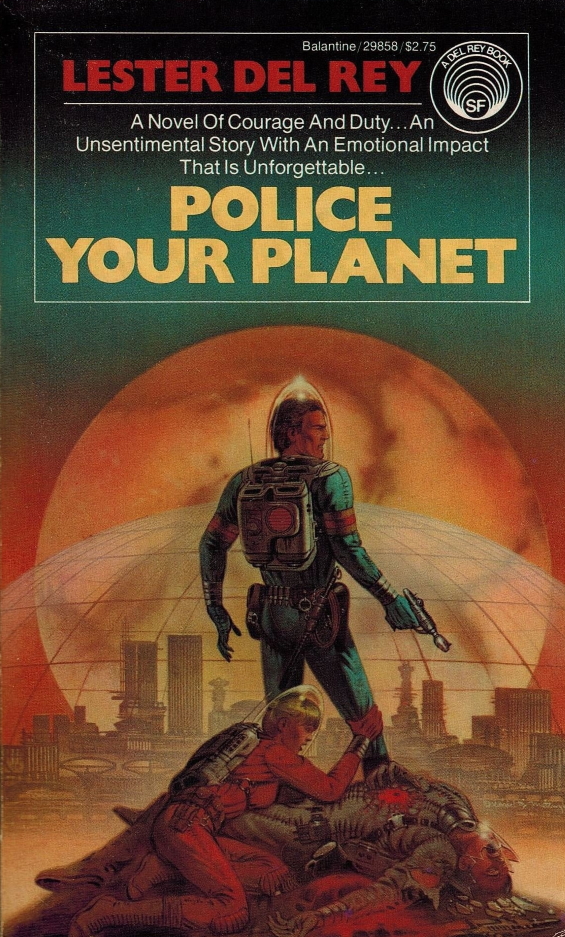
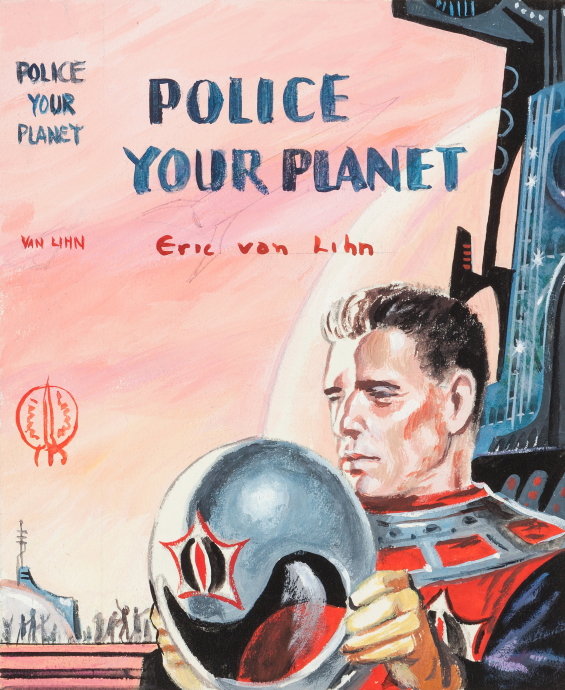
Posted by Jesse WillisBecome a Patron!

